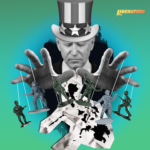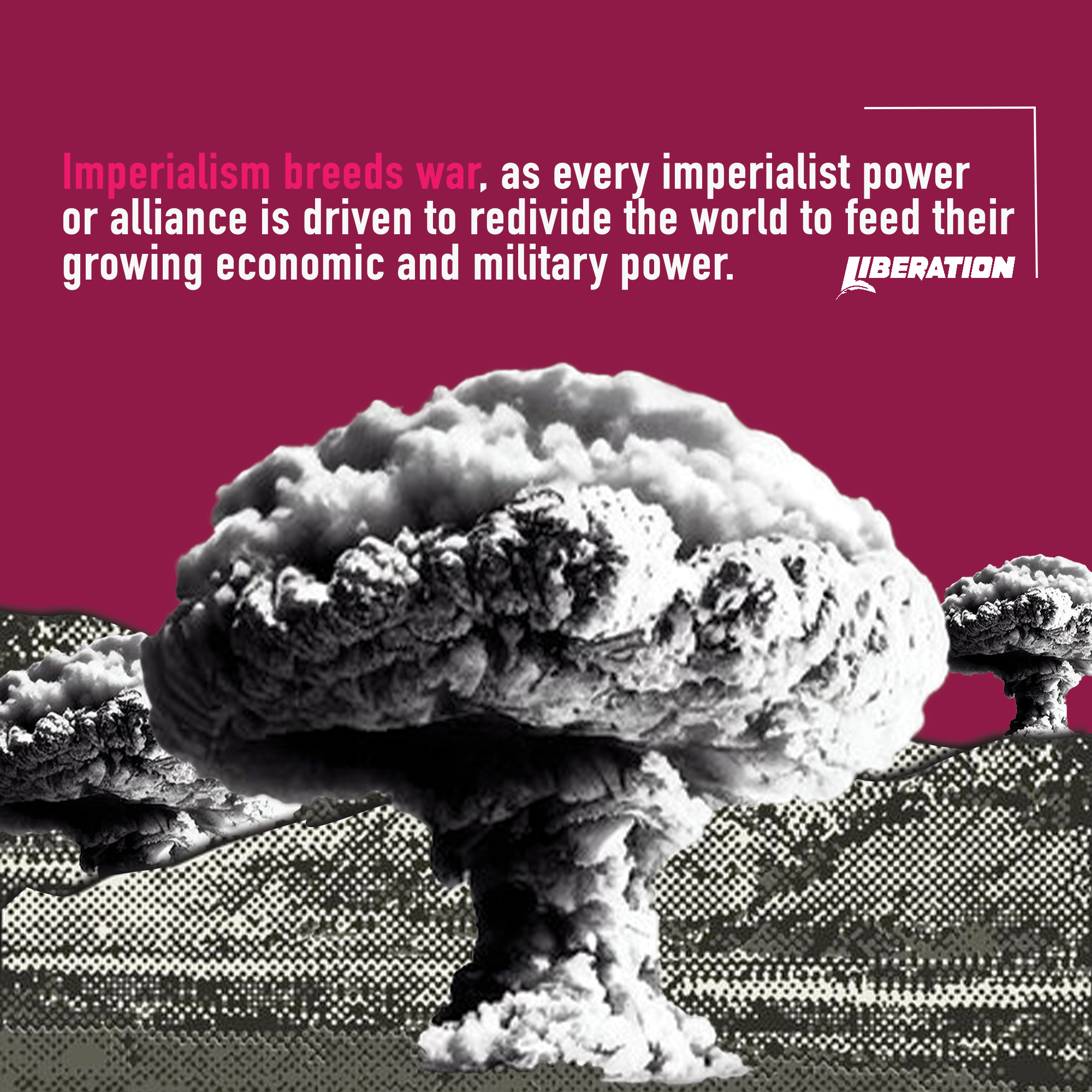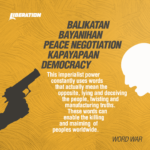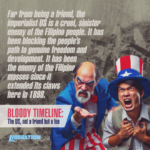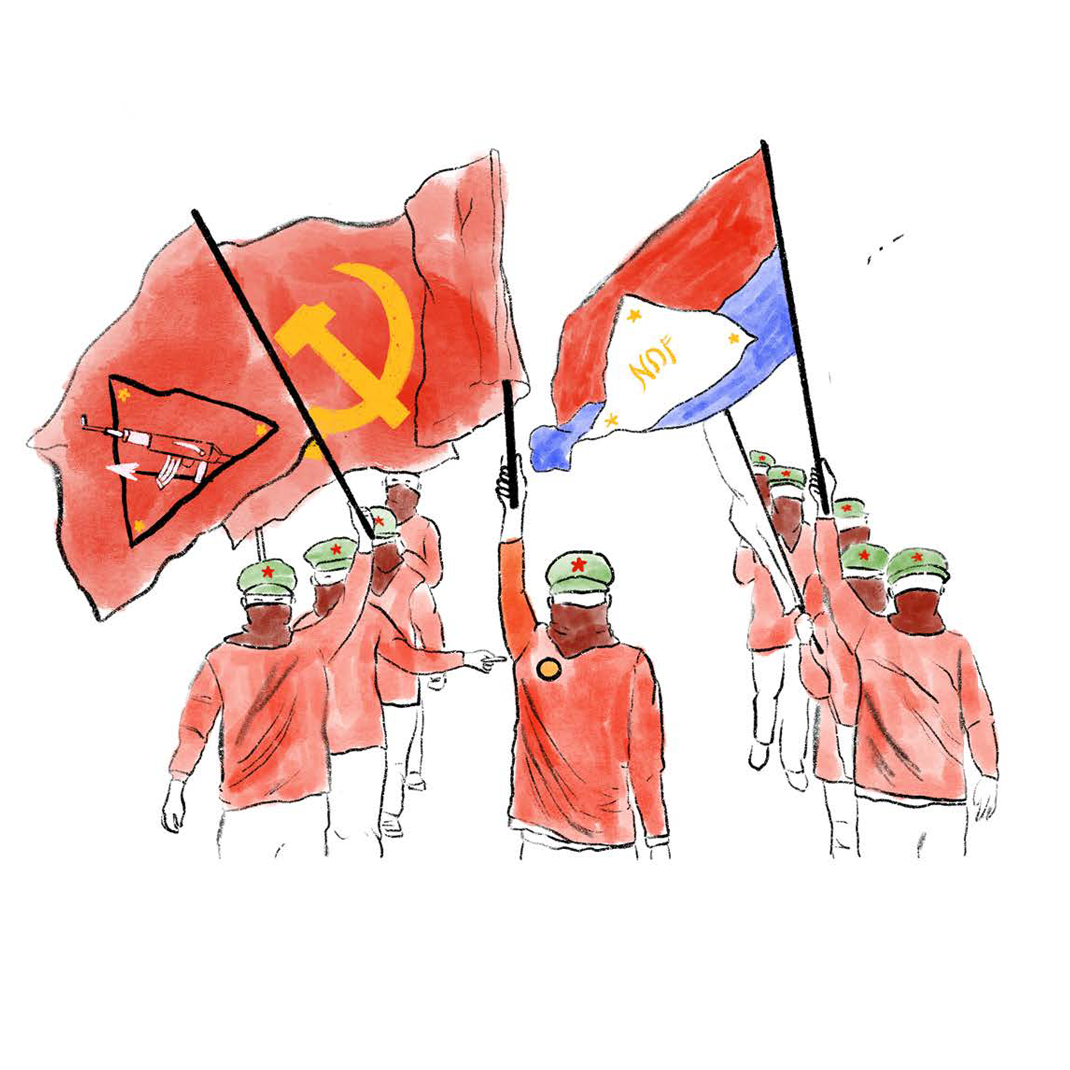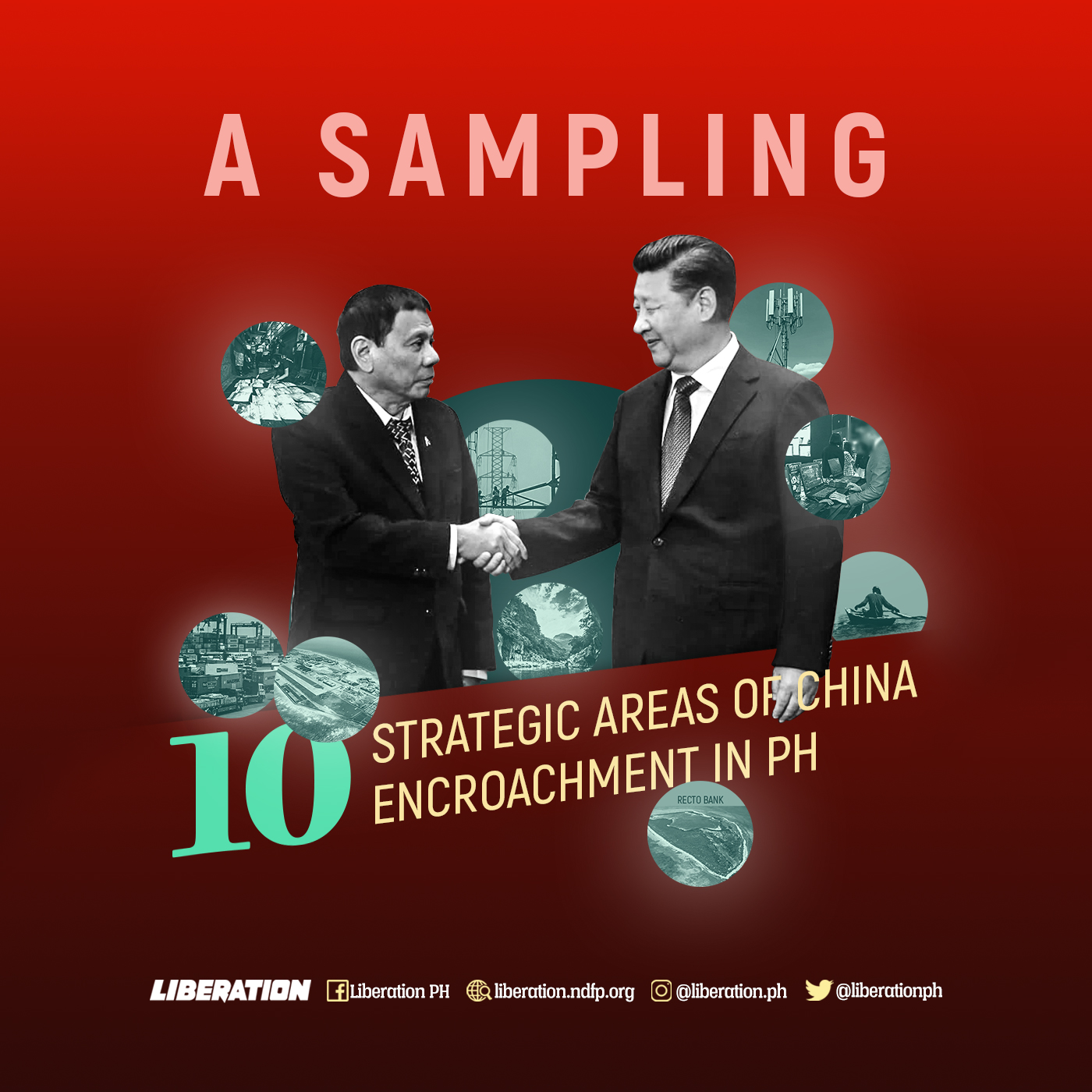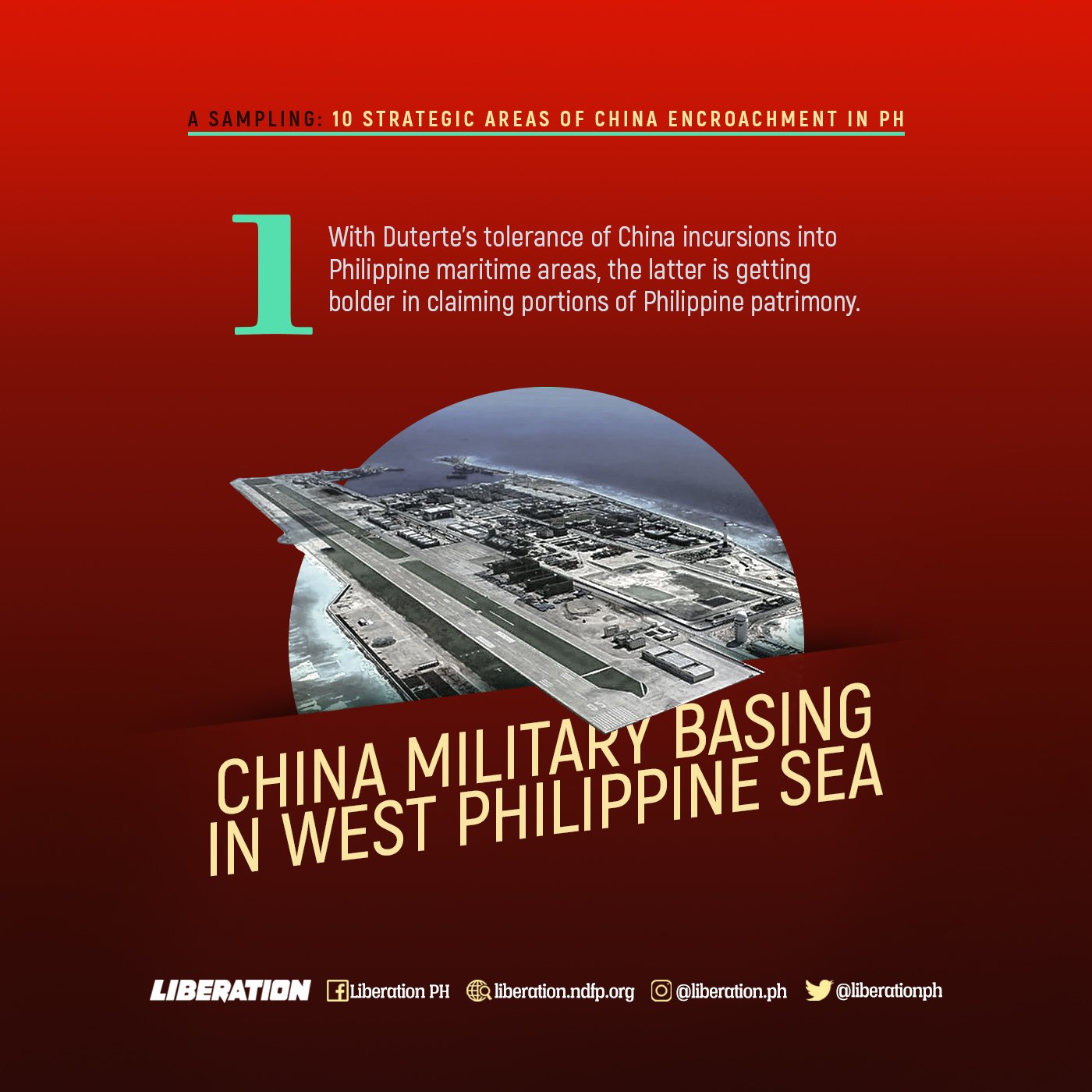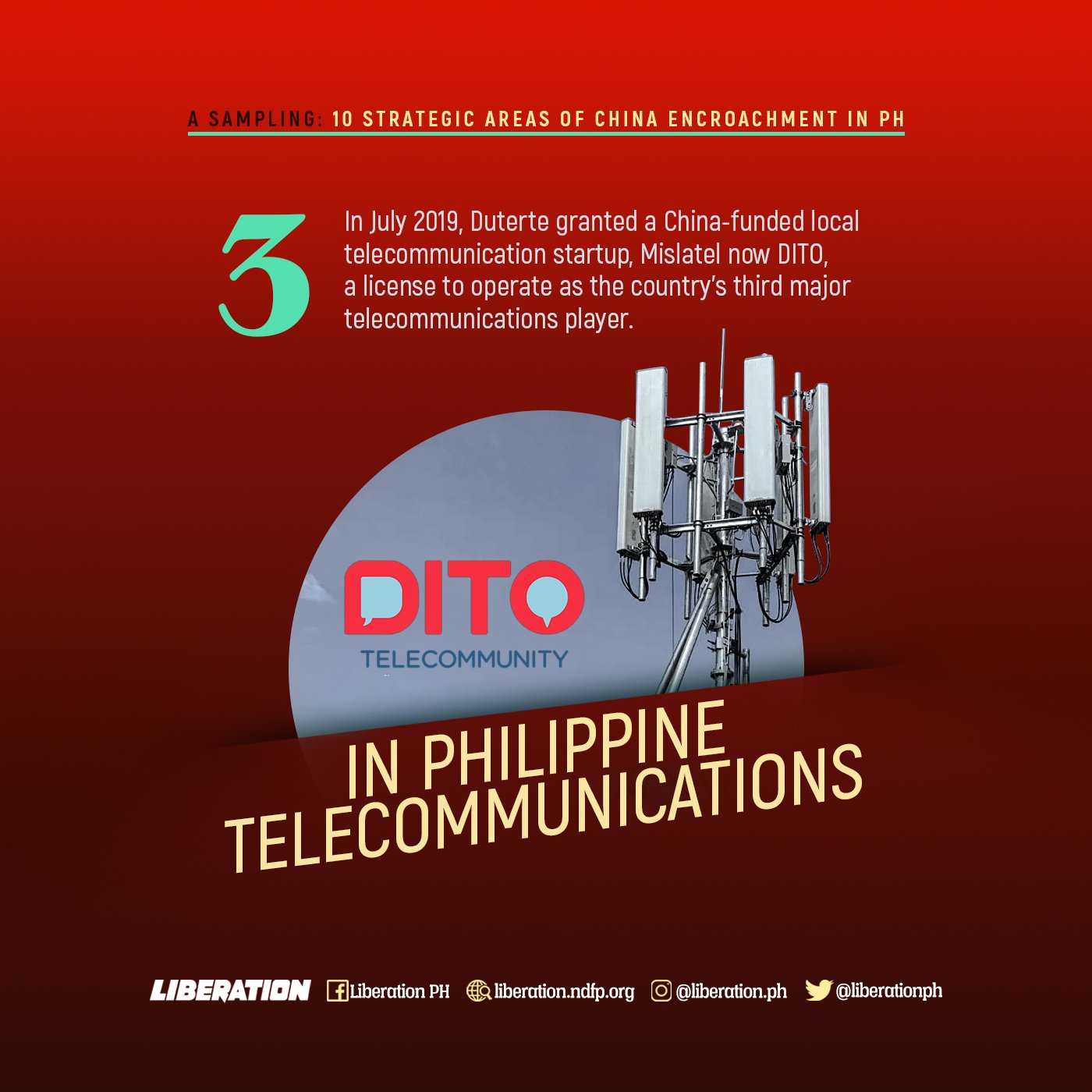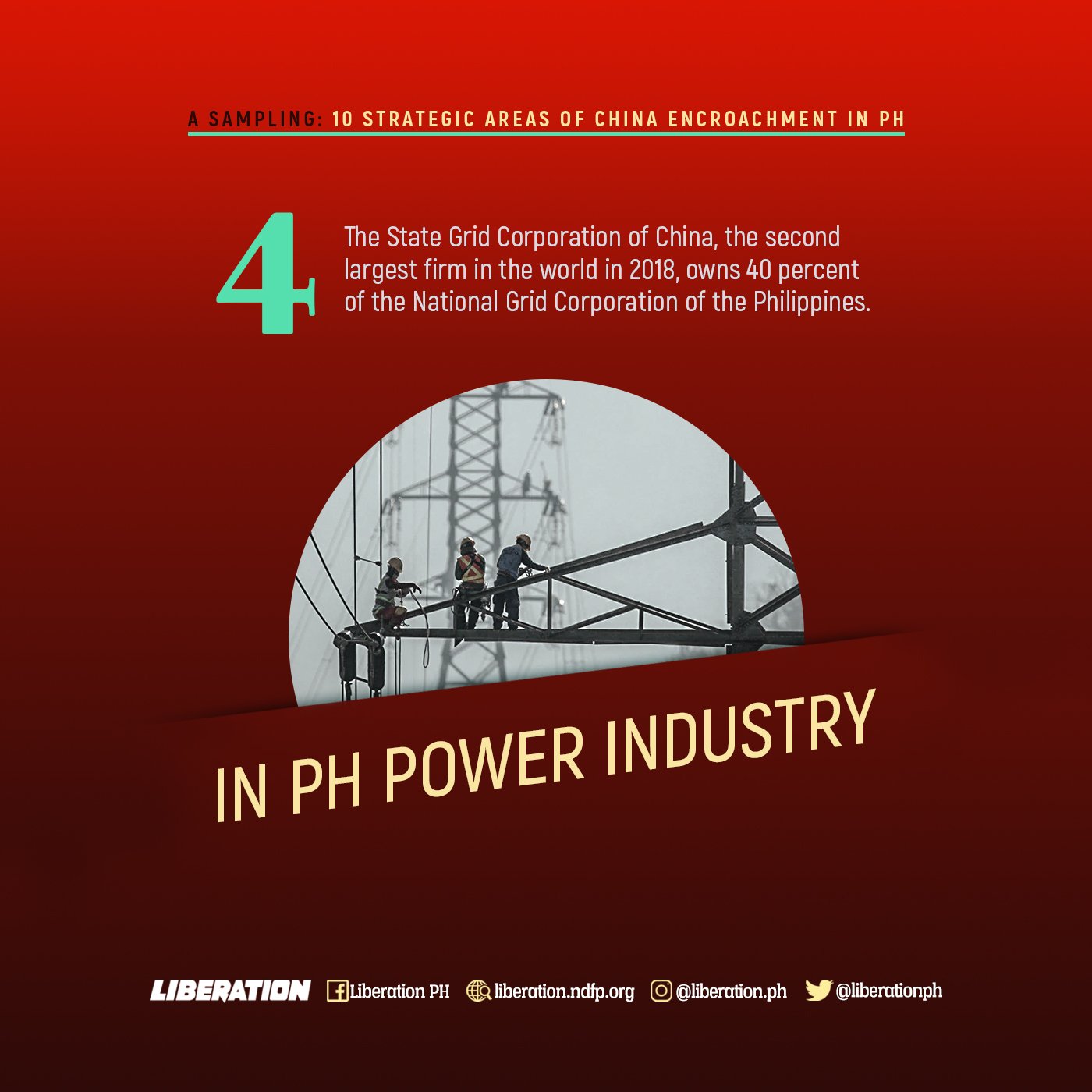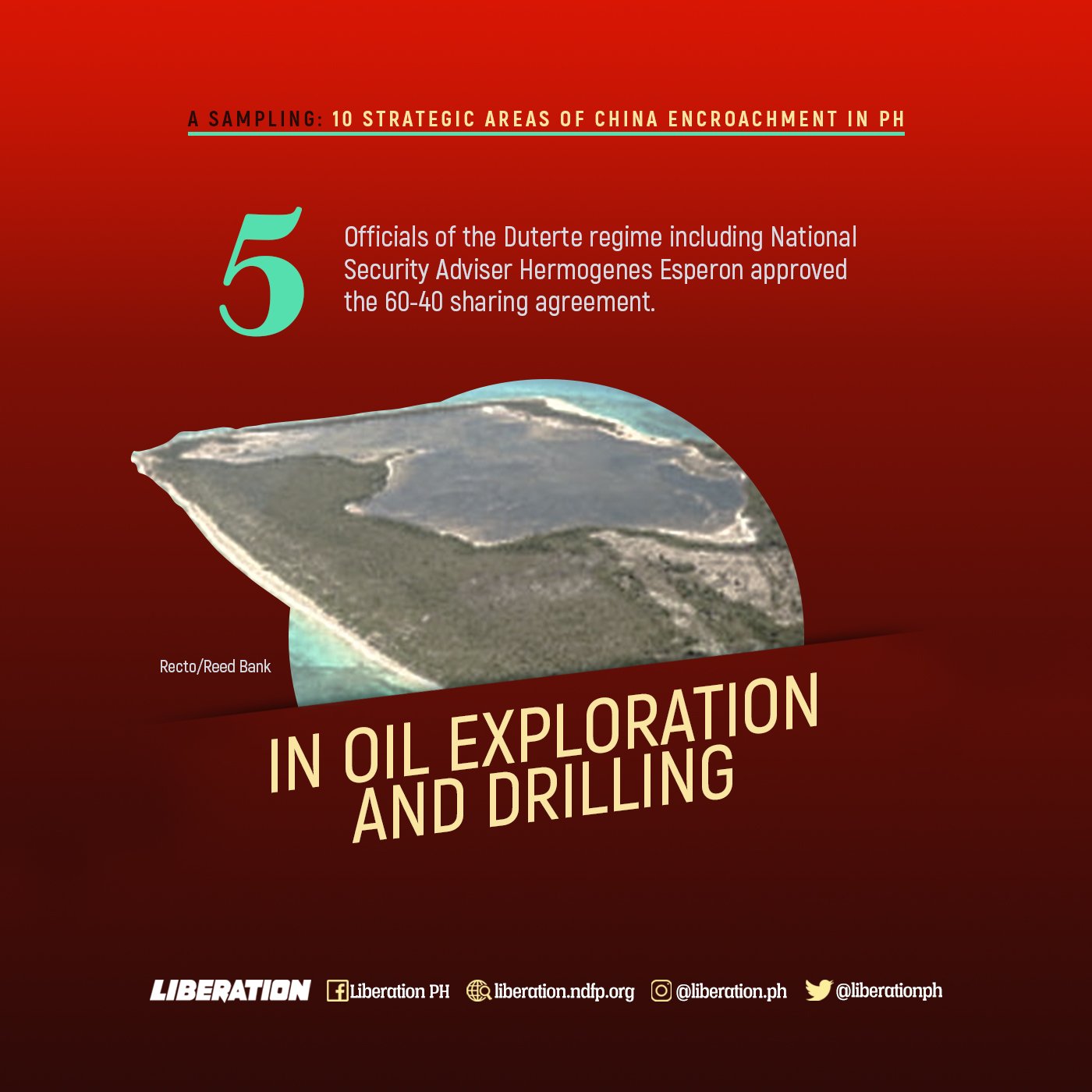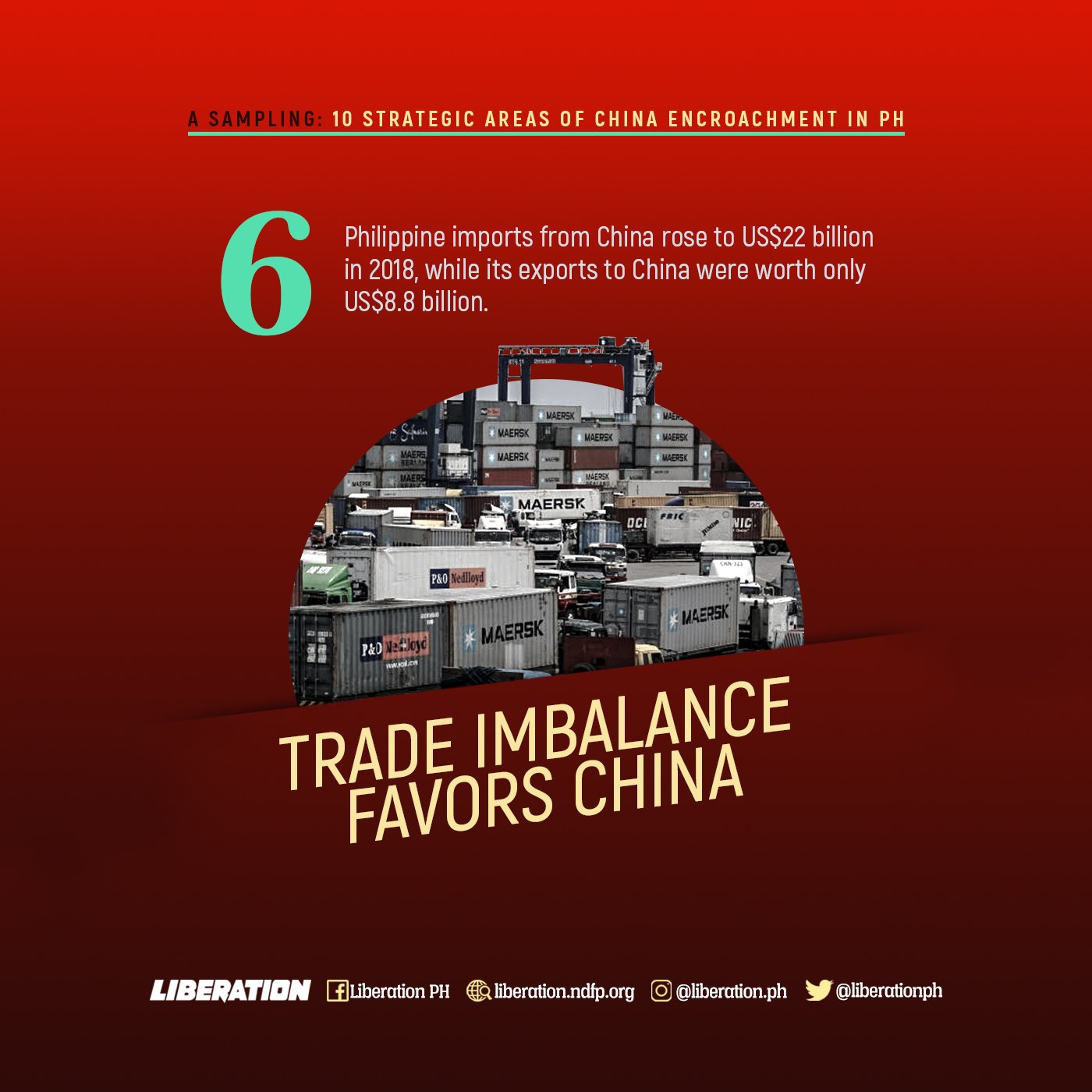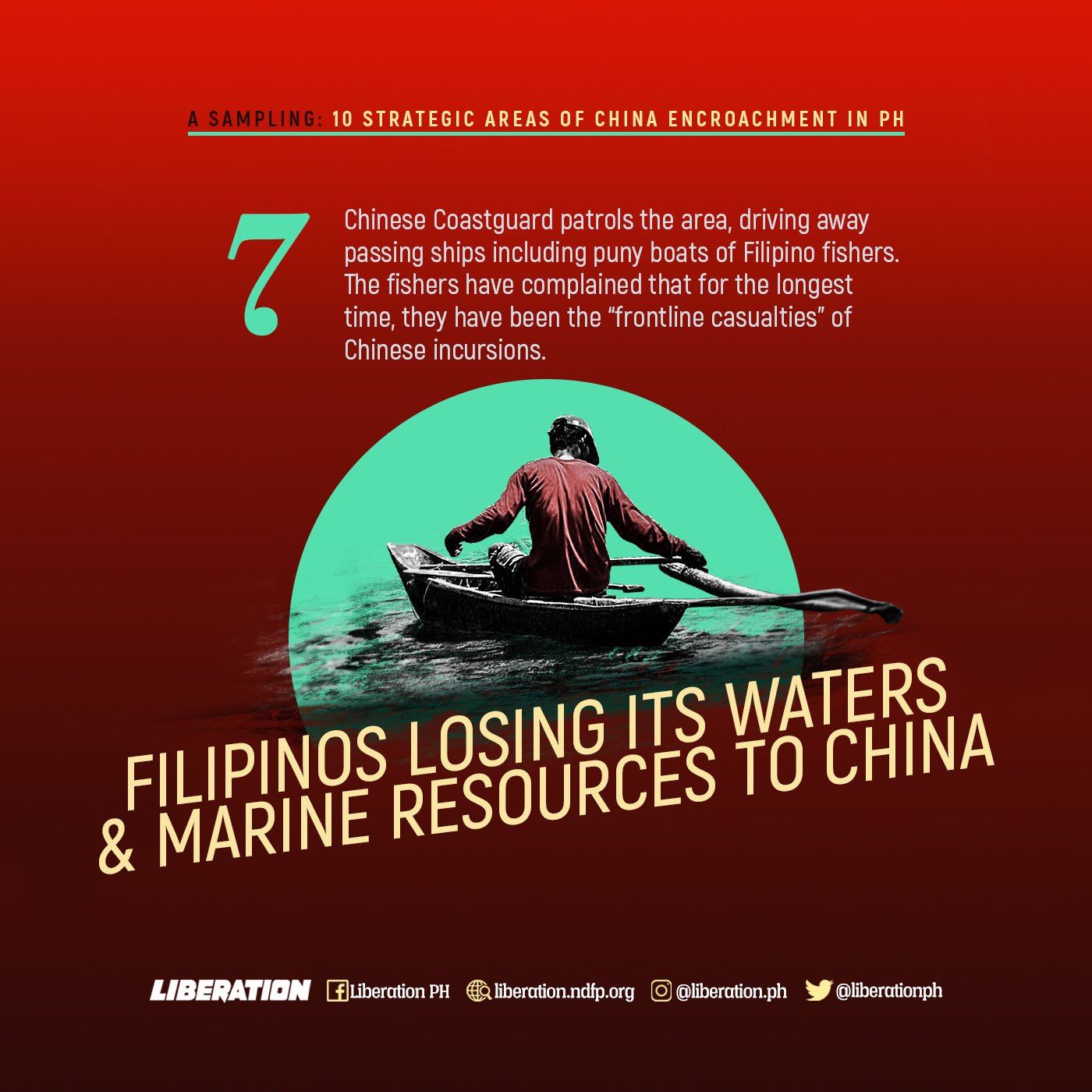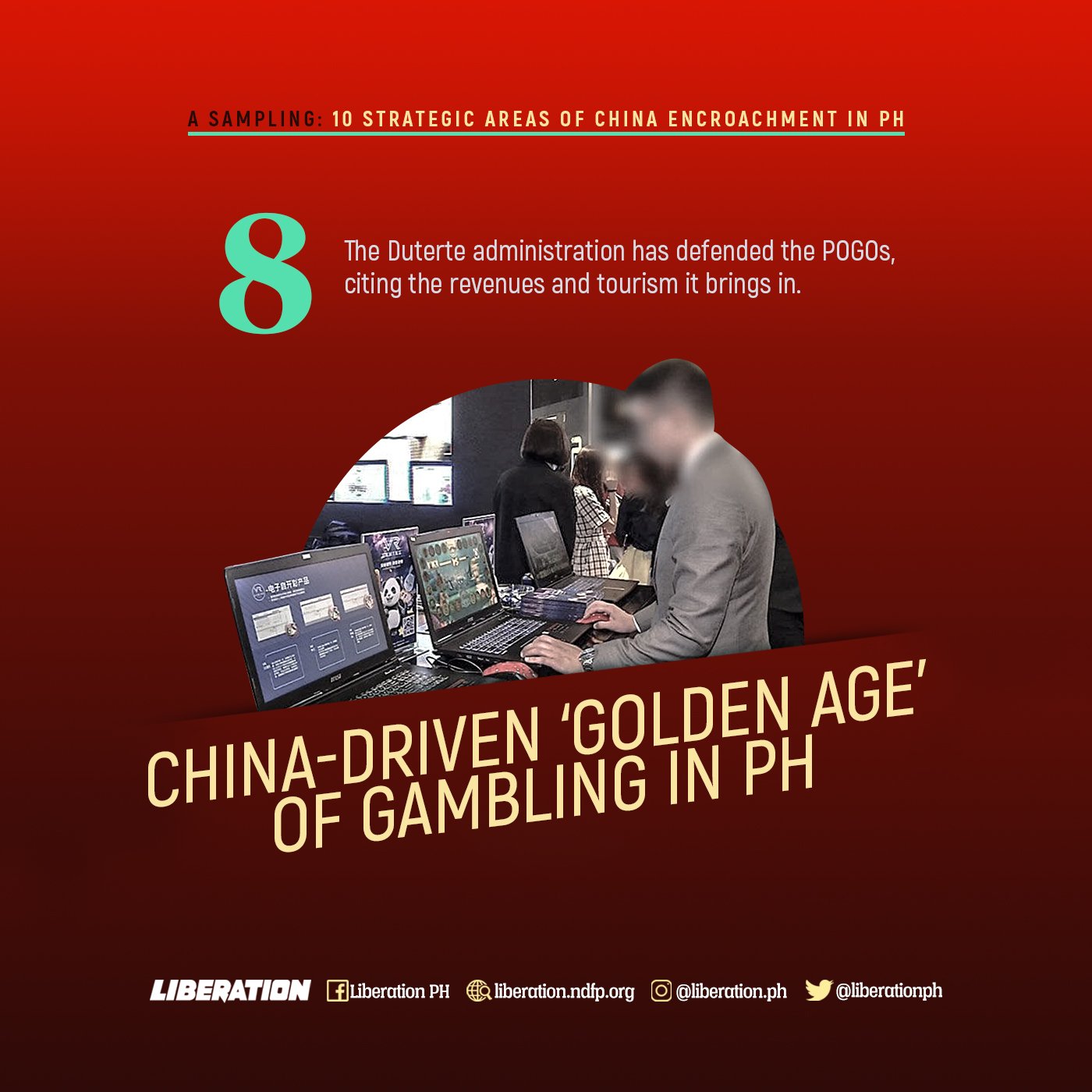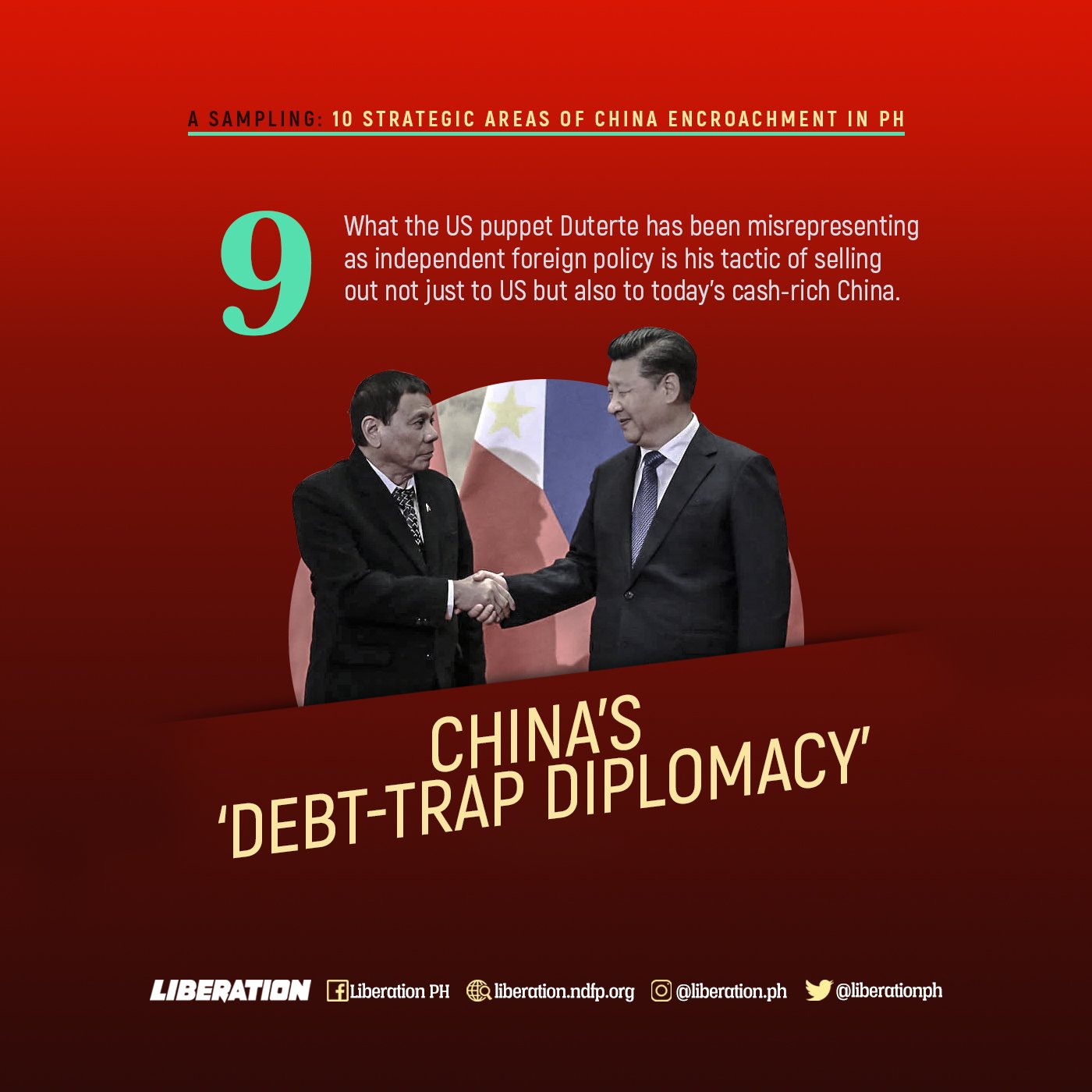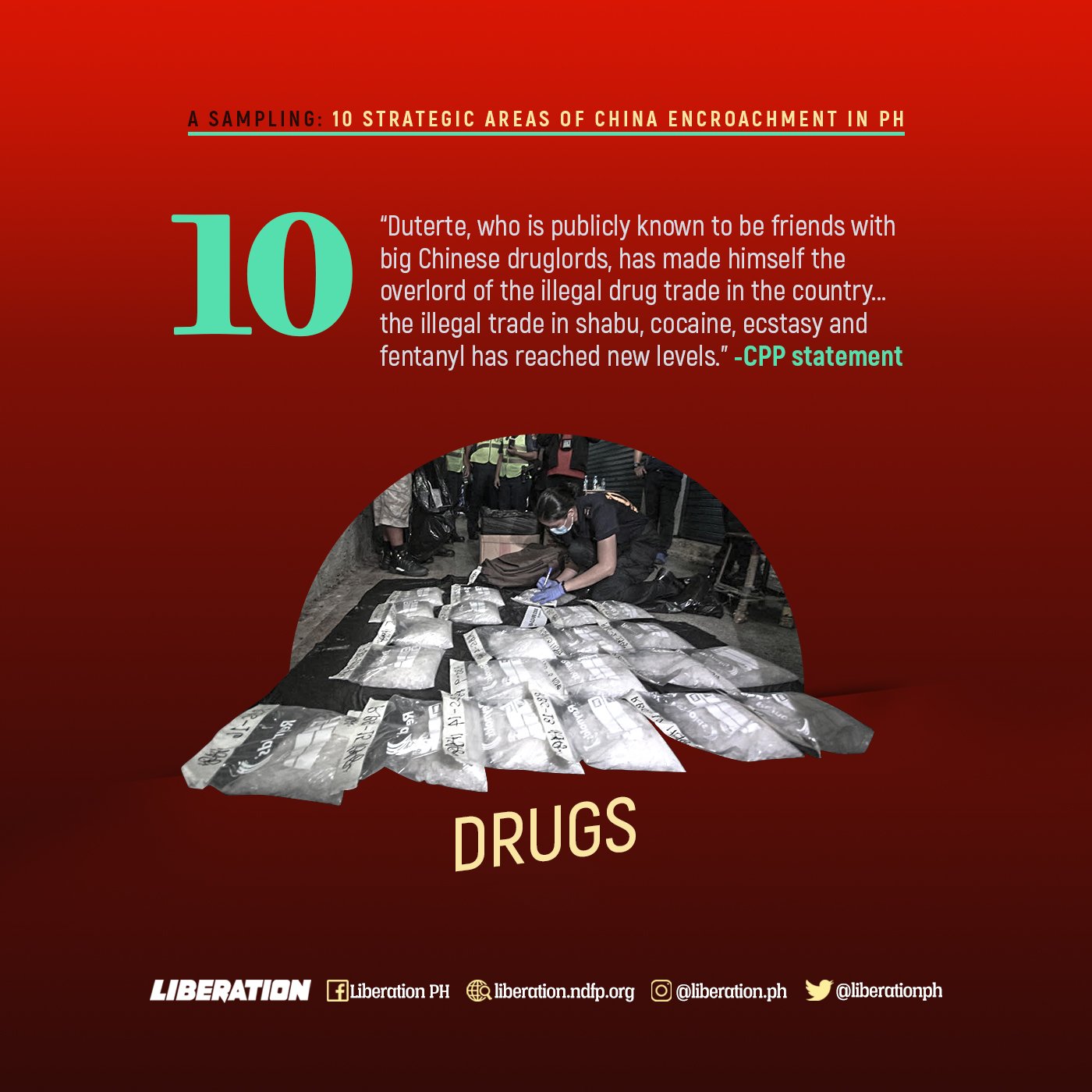The imperialist US, not a friend but a foe
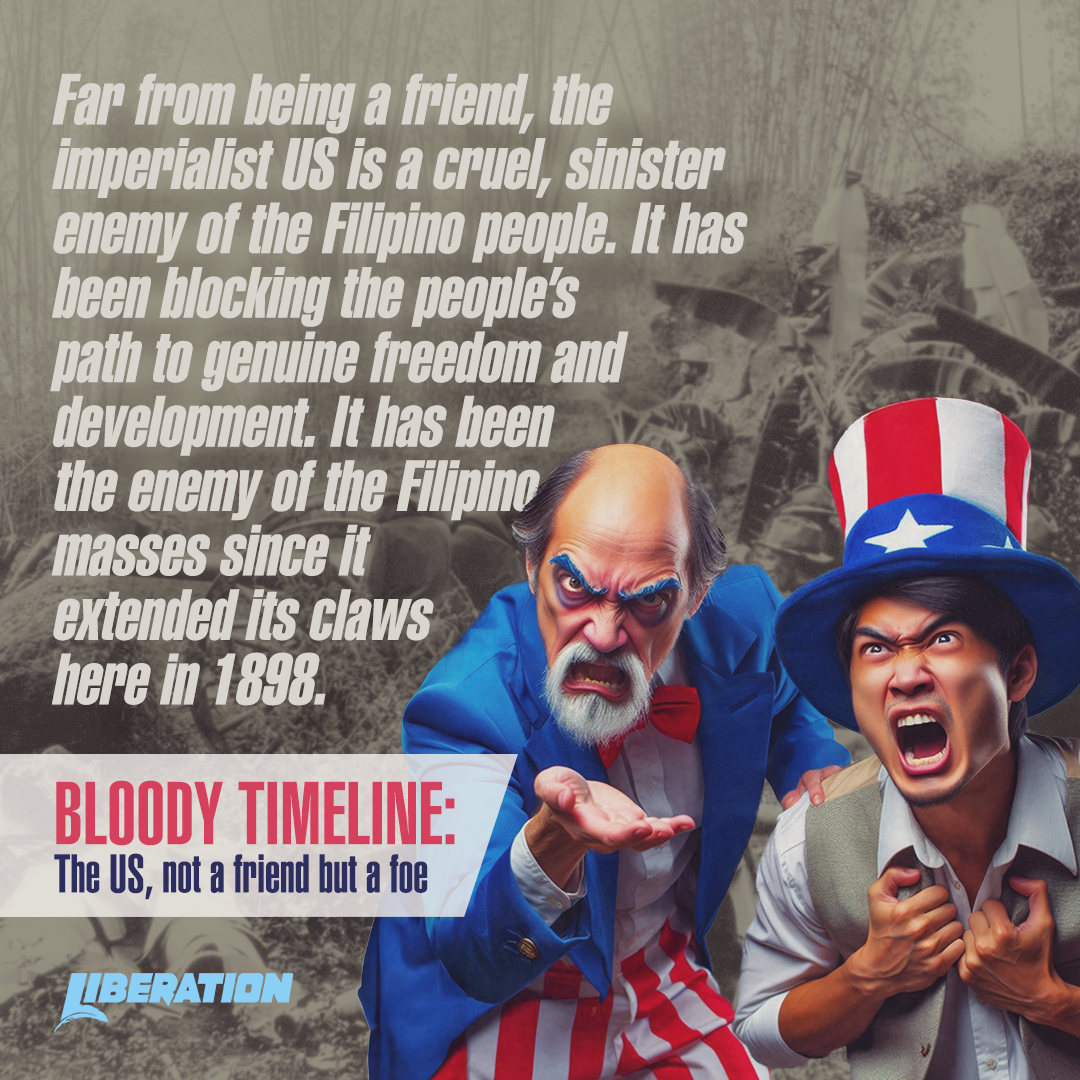
US leaders from its president to lawmakers and military chiefs call the Philippines its oldest, longest treaty partner in Asia. Before, the oft-repeated descriptions were “special relations” or “friendship.” Much earlier before that, the relationship was said to be between a big brother teaching its little brown brother “civilization.”
For 125 years now, the US has never lacked for altruistic cover for making use of the Philippines’ human and natural resources for its profit. And, for maintaining a strategic territory to carve other territories and markets in Asia especially China. From 1898, the Philippines has indeed become the oldest or longest bastion in Asia, right at the beginning of the US entry into the world stage as an imperialist power. The imperialist US not only kills and harms the Filipino people, it has used its arsenal of brutal suppression and deception of Filipinos and Americans to launch wars in other countries such as Vietnam.
Far from being a friend, the imperialist US is a cruel, sinister enemy of the Filipino people. It has been blocking the people’s path to genuine freedom and development. It has been the enemy of the Filipino masses since it extended its claws here in 1898.
Below in a nutshell is a bird’s eyeview, a timeline of the imperialist US wars of aggression and deception against the Filipino people.
Filipino-American War since 1898: massacres and atrocities to ‘civilize’ Filipinos
When the US in its first imperialist act seized control of the Philippines from the then victorious revolutionaries, it lied to Filipinos and anti-colonialist Americans. At first the US posed as a friend in 1898. But it used the Filipinos to fight the Spaniards until its colonizing troops arrived in the Philippines. It robbed the people of their valiantly fought independence in the Treaty of Paris—where Spain who was already routed by the Filipinos ceded the Philippines to US for a sum of U$ 20 million, plus protection of Spanish colonialist landholdings or businesses. Shortly after, in 1898, under the guise of US President McKinley’s deceptive proclamation of “Benevolent Assimilation”, the US attacked the Filipino people.
On February 4, 1899 American troops fired shots at Filipino soldiers on a bridge in San Juan, Manila, igniting armed hostilities and officially starting the Filipino-American war. In just a couple of years of massacres and atrocities that horrified even American anti-imperialists and critics, the US tried to downgrade the Filipino armed struggle as mere “Philippine insurrection.”
In 1902, US President Theodore Roosevelt declared that the war was over even though resistance continued and guerrillas were widely supported by the people. Then US General Arthur MacArthur was adamant that Filipinos would need “bayonet treatment for at least a decade”. Despite this, imperialist US leaders hastened to “normalize” the situation to placate critics in the US, to gloss over the terrible slaughter being committed by US troops in the Philippines, and to open the Philippines to economic exploitation at the earliest possible time.
Nevertheless, parts of the country were still turned into a “howling wilderness”, following a series of successful, mass-supported guerrilla attacks against US invaders. In retaliation, US troops shipped to the US the famous Balangiga bell, which was used by Filipino revolutionaries as a signal and a symbol of the concerted defense of the motherland. The Balangiga bell was returned decades later amid Filipino insistence, and despite years of colonial control and miseducation.
Long before the Vietnam war, US troops had resorted to inhuman forms of torture including “water-boarding,” executions, massacres and burning of men, women and children, Filipino fighters tied to and being dragged by horses, plundering of captured and killed revolutionaries and communities, and hamletting or forcing communites into concentration camps. Up to a million died (in a population of six to eight million) as a result of the US war of suppression in the Philippines from 1899 to 1910s.
This brutal war of suppression of Filipinos in 1899 “signaled the start of its [US] global conquest through war and terror,” said the Communist Party of the Philippines in a statement last February marking the 125th year since the American troops first fired shots at Filipino soldiers.
“Benevolent Assimilation” since 1898
Essentially the Philippine-American War has remained, albeit, using not just superior arms but manifold lies, double-dealing and deception. US brutality and plunder has been continuously whitewashed at every step. Though colonial history has presented Fil-Am war as just a short one, it extended to a decade of constant uprising even after Emilio Aguinaldo and his elite clique capitulated to US in 1901.
Fact is, from an armed struggle to overthrow the Spaniards to an armed struggle to counter a new imperialist power, the ilustrado or elite leadership proved vacillating, capitulationist, and only looking out for the selfish interests of its landlord, local ruling class. They surrendered the struggle for independence but the masses did not.
As soon as the US invaded and ruled the Philippines, it molded the country’s economy to its needs–raw materials, market of surplus, gateway to Asia especially China. It imposed its colonial miseducation system. It created and trained the reactionary armed forces and constabulary (same as “Vietnamization” during the Vietnam war). It honored and awarded collaborators, led by the capitulationist and elite “leaders” or dealers of Katipunan and 1898 revolution, through lucrative positions in puppet government and business deals in the new colonial economy.
The local collaborators were used to suppress the resistance of the masses and American criticisms of the war. They misrepresented the intent of the US to exploit and invade through its programs (e.g. road building to reach mines and plantations, to bring troops faster to insurgent areas, teach English as mode of instruction to develop new tastes, colonial culture and market) as examples of “altruism” from a colonial ruler. And, for so-called normalcy and peace and order, they also brutally and insidiously suppressed the resistance of the people.
They used methods such as banning the display of Philippine flag (Flag Law 1907-1919), imposing death penalty to advocates of independence even by peaceful means (Sedition Law 1901), jailing nationalist writers and critics such as Aurelio Tolentino who staged a play depicting a victorious group of armed guerillas, and misrepresenting or vilifying guerilla resistance (Brigandage Act 1902).
Today’s red-tagging was preceded by the US branding of Filipino revolutionaries in 1900s as “bandits or tulisanes.” US forces cemented alliances with local elite by giving them power to execute “hamletting” to capture guerillas (Reconcentration Act 1903), resulting in jampacked jails and high mortality rate of prisoners.
The laid down policies, profits and experiences earned by US imperialists in its first colonization and expansion propelled it to greater imperial reach, hegemonic status and more wars of aggression. The strategic importance of US aggression in the Philippines resulted to the eventual rise to US presidency of William Howard Taft, the former Secretary of War and governor general who steered the imperialist acquisition of the Philippines.
Dragging, abandoning Filipinos to inter-imperialist war, then coming back [“I shall return”] as a neo-colonizer
World War II wreaked heavy losses on the Filipino people. It was an inter-imperialist war where the Philippines, a US colony, was targeted and colonized by Japan. The US retreated using Filipino soldiers as meat shields in escaping via Bataan in Central Luzon. In their absence, it was the Hukbo ng Bayan laban sa Hapon or Hukbalahap who waged a fierce guerrilla warfare against the Japanese.
When the imperialist US returned “as promised,” and to bring Japanese power to its knees, it rained much too much bombs, destroying infrastructure and further bankrupting the country. As the Philippines was heavily damaged, the US secured an opening to remain as its neocolonial master. At the end of World War 2, the imperialists settled a redivision of territories, but contending with another victorious Communist Party in China that succeeded in its people’s war to liberate China from foreign and capitalist oppressors.
US feared the communist influence and intensifying liberation movements around the globe. In the Philippines the cry for independence remained and to placate the Filipino people, the US favored neocolonialism than direct colonialism. The Philippines was granted “independence” but the US maintained its stranglehold through unequal treaties such as the Mutual Defense Treaty and Military Bases Agreement.
That independence was a hard-won victory by the Filipino people who had first succeeded but were robbed of it 50 years earlier. This time, the imperialist US can only “respect” that independence by keeping up with appearances. In reality, it continued slapping all its imperialist demands on the country’s people and resources via its trained and controlled armed forces and puppet government.
Using Ph as second front of the US-led “war on terrror”
Following the shocking attacks on the World Trade Center in New York in 2001, imperialist US latched on to a new justification for continuing its wars of aggression and intervention in other countries.
Because it couldn’t continue hyping an anti-communist hysteria after former communist China joined the ranks of capitalists and had trade and investment deals with the US, the latter demonized as “terrorists” and “rouges” its targets among its rivals and other independent nations it wished to control for resources and geopolitical reasons.
In the mold of communist hysteria whipped up during the 50s to galvanize support for US wars of aggression and Cold War against the then communist states of China and Russia, the “war on terror” relied on tagging and demonizing US targets. It didn’t stop even in the face of protests from the United Nations nor persistent demands of the people for proven basis and evidences for launching wars.
The war on terror led the rulers of other countries in enacting anti-terror laws with very broad definition of terrorism, in effect maligning and targeting the democratic protesters, critics, liberation movements, and revolutionary forces.
The Philippines was designated as the “second front” in the US-led “war on terror.” This war was supported by puppet Philippine presidents from Gloria Arroyo to present. They tried to enact an Anti-Terror Law and succeeded only under the Aquino 2 regime, but they were dissatisfied with the safeguards for human rights in the law that under the US-Duterte regime, they railroaded a more sinister Anti-Terror Act during the lockdowns of COVID-19 pandemic.
The imperialist US-led “war on terror” is unleashed also in the Philippines. The reactionary puppet governments from Arroyo to Marcos 2 have used the language of “war on terror” to whitewash their brutal, dirty war against the Filipino people and the national democratic revolutionaries. True to the brutal heavy-handed pattern of war laid down by imperialist US at its first foray in the Philippines, the war called “counter-insurgency” by its puppet regimes have meant bombings and artillery shelling of rural communities, “focused military operations” that do not distinguish between civilian and combatant targets, killings of armed revolutionaries, hors d combats and unarmed activists to create a false picture that their “war on terror” is winning. On the contrary the masses are seeing them more clearly as, in fact, the actual terrorists and enemies of the people.
Dragging Ph into the looming proxy war between US and China
By dint of the people’s clamor, the puppet Philippine government would sometimes be prodded to take action to defend Philippine sovereignty on its territories in the South China Sea. This included the case it filed under the United Nations Convention in the Laws of the Seas (UNCLOS) that succeeded in establishing the country’s territorial maritime claims.
The tensions in the West Philippine Sea have been the latest justification by imperialist US and puppet Philippine presidents in welcoming more US troops and building US military bases and facilities despite its own reactionary Constitution’s ban on it. The US not only bound the Philippines as a so-called “treaty ally” (under Mutual Defense Treaty of 1950s) but also included the Philippines in the 18 countries it designated as a “major non-NATO ally”. By US definition, such an ally, though not a part of NATO (North Atlantic Treaty Organization), has a deep strategic and security partnership with US. Such an ally can get loans of materials and equipment for research, development and testing, enter formal agreement with the US defense department to carry out such research and development projects, even purchase depleted uranium ammunition. In short, it reads like what a US extended territory is good for. Worse for the Filipino people, the US can place their war reserve stockpiles on countries it designated as major non-NATO ally.
Yet, for all its crows over defending the allies and Philippine sovereignty, over the years the fisherfolk have been raising the alarm over China’s massive reclamation and eventual military base-building on waters and islets within the Philippine territory.
Still, the Philippine reactionary military and navy have only used this to justify calls for more budget to finance the Armed Forces of the Philippines’ “modernization,” and under Marcos 2, to increase the number of “agreed locations” of US military bases. Amid push from the people to actually defend the territory, the reactionary AFP has been responding only with promises to patrol, to increase the patrolling and patrol for what it calls as “minimum credible defense posture.”
Recently though, as the US-China collusion and competition grow sharper, the US has become more driven on expanding the reach of its war machines and aggression in Asia. With its increasingly frequent and larger war games and bases in the Philippines, it is further grooming its puppet government and controlled reactionary troops to be in position for US use should it launch war against China in Taiwan.
This is a war at the expense of the Filipino people because not only will it drag the nation to a war because of the US, the US has been more strenuously pushing and propping the local reactionary Armed Forces of the Philippines to crush the forces of the Philippine national democratic revolution. At present, it is the national democratic forces who are the biggest stumbling block to the imperialist US and its puppet government in freely exploiting the people and resources of the Philippines. If it wants to use the AFP for a proxy war with China in Taiwan, it wants to maintain the Philippines as its territory, through its puppet, and as such, it seeks the more vicious “counterinsurgency” operations against the revolutionaries to remove the forces calling for genuine liberation and sovereignty of the Philippines. For this, the imperialist US is utterly not a friend but a vicious enemy of the Filipino people.
These are some flashpoints in Philippine history where the US starkly showed that it is very very far from being a friend or an ally of the Filipino people. On the contrary, in every flashpoint, the US worked to disadvantage the people. It robbed the victories the people won in their struggle. It used the Filipinos and their resources for their narrow ends, unleashing disasters, poverty, persistent hunger and crises. The Filipino people have every reason to dissociate from and repel the imperialist US, starting with its puppet government and reactionary troops. The Filipino people has every reason and right to cherish, establish, and expand their genuine democratic government in the countryside, through their continuing support of the New People’s Army that is continuing the national democratic revolution began by their ancestors in Katipunan of 1890s. ### (Pinky Ang)

